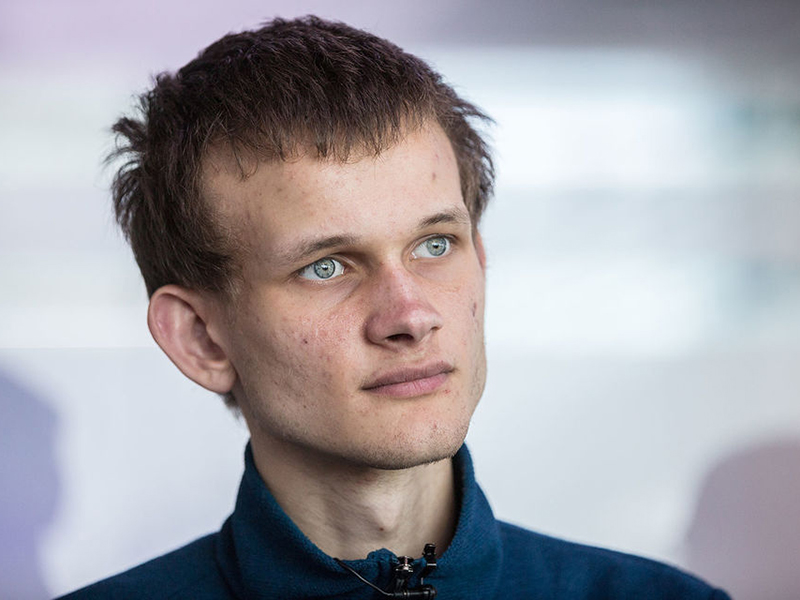Vitalik Buterin Responds to Critics with Plan to Transform Ethereum
29.04.2025 9:00 2 min. read
Ethereum is once again at a crossroads, facing mounting concerns about whether its core network can keep up with growing demand.
As more users migrate to faster Layer-2 solutions like Arbitrum and Optimism, critics — including Cardano’s Charles Hoskinson — have openly questioned Ethereum’s long-term survival.
Hoskinson recently argued that Ethereum could lose relevance within 10 to 15 years, predicting that Layer-2 platforms would eventually siphon off its value while Bitcoin continues to dominate.
But Ethereum co-founder Vitalik Buterin isn’t standing still. In a move that surprised many, Buterin unveiled a proposal for a major upgrade called “Layer-Zero.” This plan would overhaul Ethereum’s foundation by transitioning from the traditional Ethereum Virtual Machine (EVM) to a new zkVM architecture, built on the RISC-V standard.
If implemented, the upgrade could slash computational load by up to 832 times, cut transaction proving cycles by nearly 96%, boost throughput thirtyfold with GPU acceleration, and drastically compress blockchain data. The goal: make Ethereum lighter, faster, and far more efficient — tackling the very issues critics have pointed to.
Beyond technical improvements, the proposal signals a larger strategic shift. By strengthening the base layer, Ethereum could reduce its reliance on external scaling solutions, keeping more value and user activity within its own network.
Though still in the early stages, the Layer-Zero proposal highlights Ethereum’s determination to evolve rather than be eclipsed. Far from retreating, Buterin’s vision suggests Ethereum is preparing to solidify its leadership for the next era of blockchain innovation.
-
1
President Trump’s CFTC Pick Discloses Millions in Crypto
29.05.2025 10:00 2 min. read -
2
Binance Founder Denies Role in Trump-Linked Crypto Project Amid Media Backlash
24.05.2025 12:00 1 min. read -
3
BlackRock Eyes Major Stake in Circle’s IPO Amid Surging Demand
01.06.2025 17:30 1 min. read -
4
Travala Reports 80% of Bookings Now Paid in Crypto
24.05.2025 8:00 1 min. read -
5
Tech Boom Echoes Dot-Com Era as Markets Ignore Warning Signs
25.05.2025 12:00 2 min. read
Trump Turns 79 With Billions in Crypto and a $45M Parade
Washington is gearing up for a grand $45 million military parade on June 14, 2025, marking two milestones: the U.S. Army’s 250th anniversary and Donald Trump’s 79th birthday.
Warren Buffett Narrows His Bets as He Prepares to Step Down
As Warren Buffett edges closer to ending his six-decade reign at Berkshire Hathaway, the legendary investor has tightened his focus, placing nearly $197 billion into just a handful of stocks.
KuCoin Plants Its Flag in Bangkok With a Licensed Thai Exchange
KuCoin has gone from serving Thailand’s traders remotely to operating on their home turf.
Tether Makes a Golden Move: Snaps Up One-Third Stake in Elemental Altus
Tether, the company behind the world’s largest dollar-pegged stablecoin, has quietly expanded its footprint into the precious-metals sector.
-
1
President Trump’s CFTC Pick Discloses Millions in Crypto
29.05.2025 10:00 2 min. read -
2
Binance Founder Denies Role in Trump-Linked Crypto Project Amid Media Backlash
24.05.2025 12:00 1 min. read -
3
BlackRock Eyes Major Stake in Circle’s IPO Amid Surging Demand
01.06.2025 17:30 1 min. read -
4
Travala Reports 80% of Bookings Now Paid in Crypto
24.05.2025 8:00 1 min. read -
5
Tech Boom Echoes Dot-Com Era as Markets Ignore Warning Signs
25.05.2025 12:00 2 min. read


